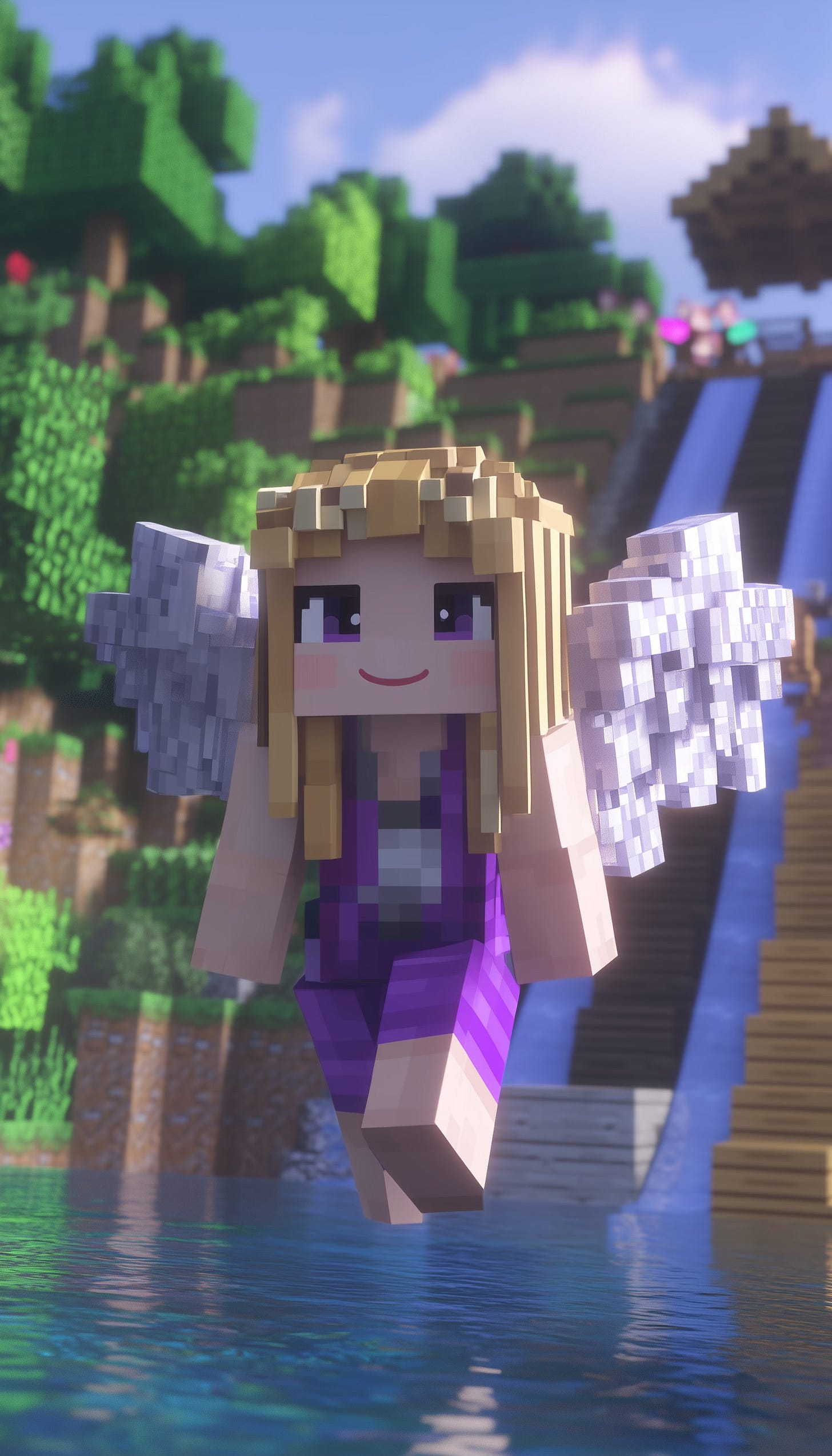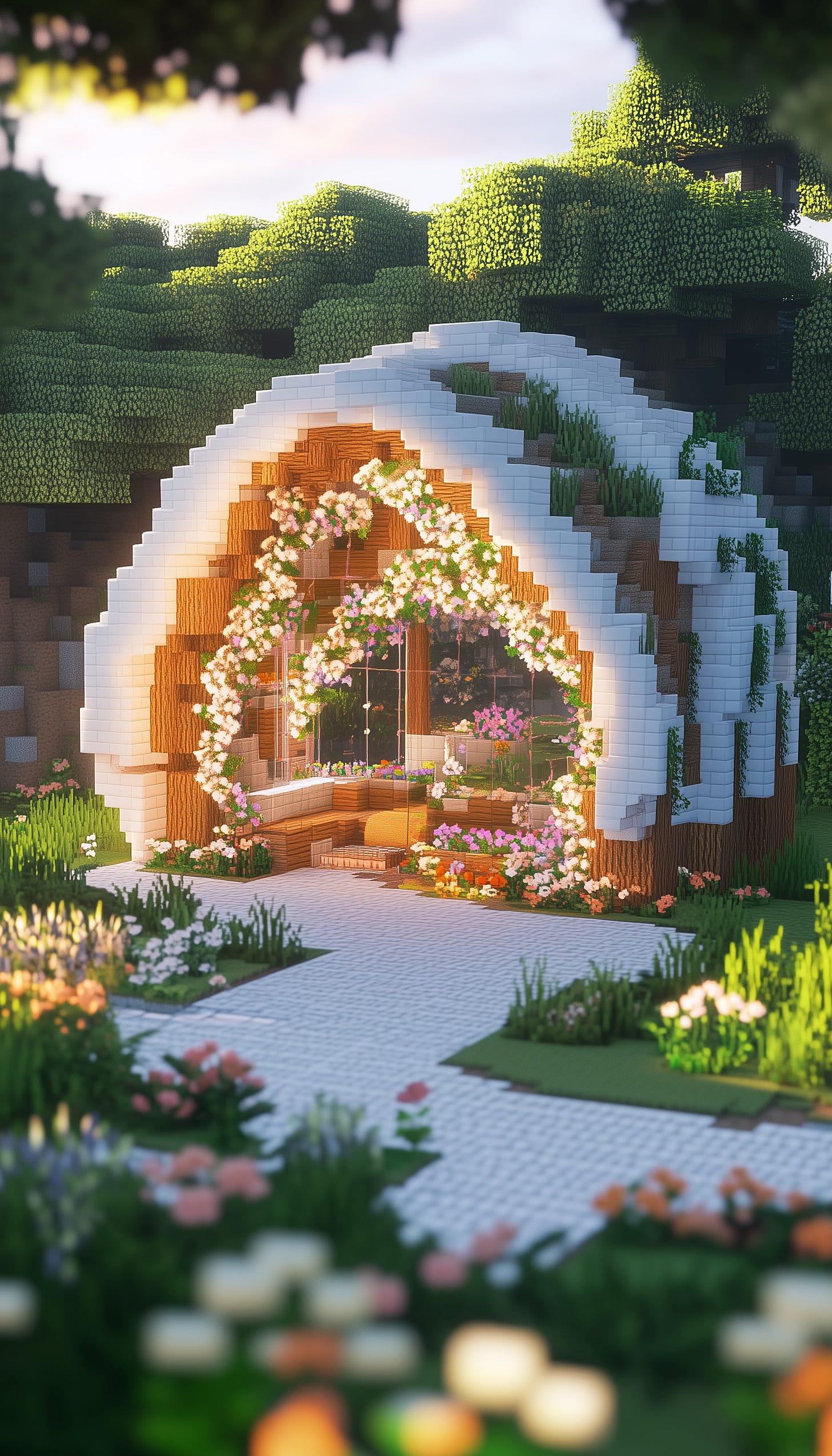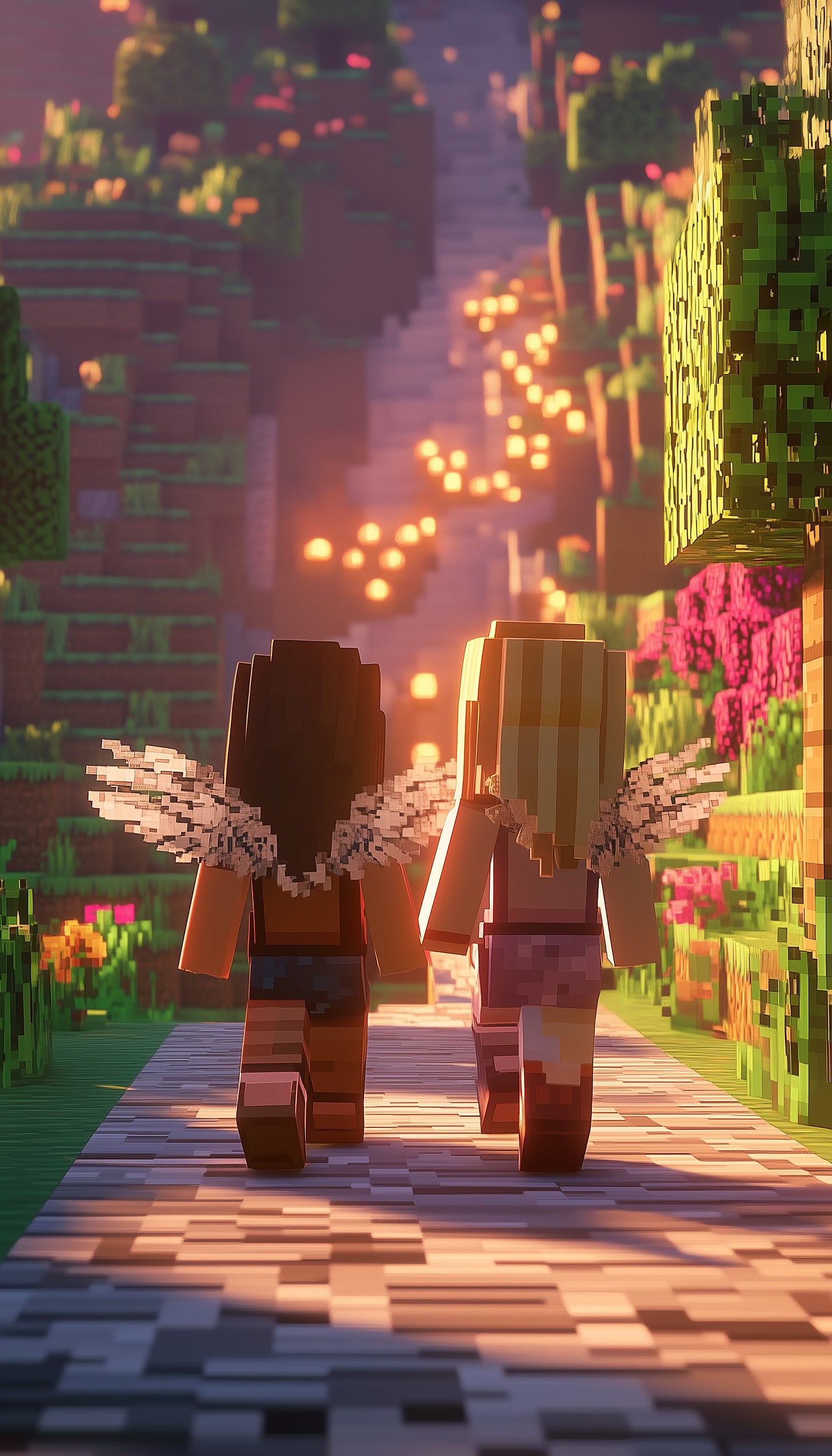The Benefits of Video Games for Anxiety and Mental Health: A Look at Minecraft
Video games often get a bad rap, but when it comes to mental health, certain games can actually offer some surprising benefits. For those with anxiety or neurodivergence, games like Minecraft can be especially soothing and helpful. My 8-year-old daughter, who has an unofficial diagnosis of neurodivergence, finds comfort and creative expression in Minecraft, a game that’s more than just fun—it’s a powerful tool for mental well-being. In her therapist’s office, she dives into Minecraft’s world-building mode, crafting everything from dream houses and treehouses to schools and water slides. Even better, the game allows her to maintain a close friendship with her best friend, who moved to the UK, by playing together in each other's realms.
Here are five benefits of playing Minecraft, and video games in general, for mental health and anxiety:
1. Encourages Creativity and Problem-Solving
Minecraft is essentially a blank canvas where players can design and build their own worlds, which fosters creativity. For neurodivergent individuals, this open-ended gameplay offers a unique outlet to explore imaginative ideas and problem-solving techniques. Players can experiment with different designs and strategies without any real-world consequences, boosting their ability to think creatively and solve problems. Studies have shown that video games can enhance cognitive skills like spatial navigation, reasoning, and decision-making—abilities that extend beyond the game and into daily life.
2. Supports Neuroplasticity and Cognitive Development
The concept of neuroplasticity, the brain’s ability to rewire and adapt, is key when it comes to the benefits of video games. Playing games like Minecraft involves tasks that stimulate different areas of the brain, from motor coordination to memory and reaction time. When players navigate through virtual landscapes or build complex structures, they are essentially training their brains to recognize patterns, think strategically, and adapt to new challenges. Over time, this can improve cognitive function and even help “rewrite” negative thought patterns associated with anxiety.
3. Provides a Safe Space for Emotional Regulation
When my daughter feels overwhelmed, Minecraft serves as a comforting escape where she can control her environment. This sense of control is especially valuable for those with anxiety or neurodivergence, as it provides a space where they can manage their emotions and practice self-soothing techniques. Video games, in general, have been shown to help people learn resilience by offering manageable challenges and safe ways to experience failure and success. In this way, Minecraft acts as a therapeutic tool, helping my daughter regulate her emotions during difficult times.
4. Facilitates Social Connection and Communication
Even though my daughter’s best friend now lives in the UK, they can still "visit" each other's Minecraft realms and play together. This opportunity for connection is crucial for maintaining relationships despite physical distance. Social interaction within games can also help neurodivergent children practice communication skills in a less intimidating environment. Online gaming communities, when monitored carefully, can provide social support and encourage positive social behaviors like cooperation and teamwork.
5. Reduces Stress and Promotes Relaxation
The calming nature of Minecraft's building mode can help reduce stress levels. The game offers a sense of routine and predictability, which can be particularly helpful for individuals dealing with anxiety. Research shows that activities requiring focus and mindfulness, such as crafting or building, can trigger a relaxation response in the body. This can help soothe the nervous system and reduce symptoms of anxiety, making Minecraft a useful coping tool for my daughter and others who experience mental health challenges.
Exploring the Science and Research
The benefits of gaming for mental health are backed by research. According to a special edition of Time magazine focusing on Minecraft, the game’s versatility and educational potential have made it a valuable resource for cognitive and emotional development. Additionally, research has shown that games which engage players in creative problem-solving or strategic thinking can help boost neuroplasticity. In particular, the cognitive benefits associated with gaming extend to various types of games, with Minecraft standing out for its ability to enhance memory, spatial recognition, and even resilience.
While the brain’s capacity for change and adaptation is still being explored, it's clear that playing video games can play a role in encouraging positive changes in behavior and mental processes. For those who experience anxiety, the calming nature and creative freedom offered by games like Minecraft can provide a much-needed reprieve from stress and a valuable tool for self-expression and growth.
Final Thoughts
Minecraft has been more than just a game for my daughter; it has become a meaningful part of her journey toward emotional regulation and connection. As experts continue to study the brain’s remarkable abilities, the role of video games in supporting mental health will likely become even clearer. For now, games like Minecraft are a reminder that video games can be much more than just entertainment—they can be a bridge to better mental well-being, creativity, and even friendship across the miles.
If you or your child enjoys playing video games, consider the potential benefits not just for fun, but for mental health and cognitive development as well. With mindful use, gaming can be a valuable part of a holistic approach to wellness.










